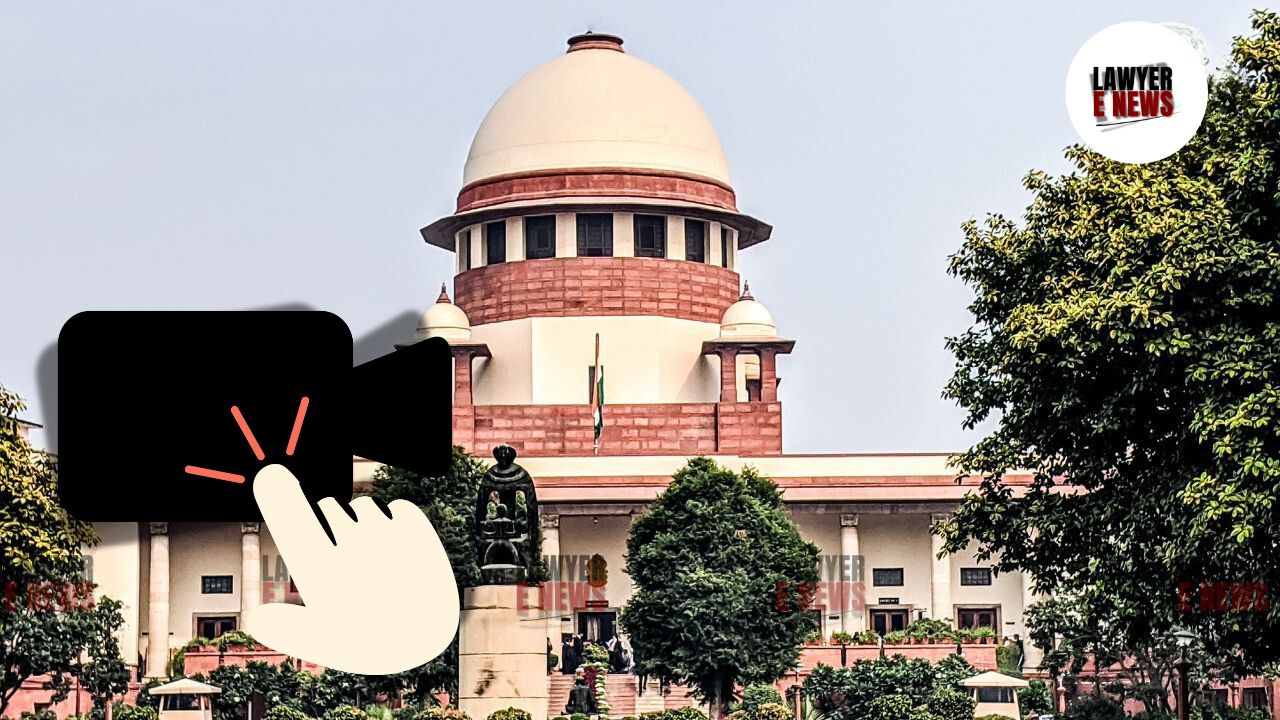-
by sayum
14 February 2026 2:22 PM



Supreme Court Warns Against Misuse of Online Appearance Portal, Highlights Impact on Legal Profession's Integrity. In a recent ruling, the Supreme Court has emphasized the need for strict adherence to rules governing virtual court appearances by advocates. The bench, comprising Justices J.K. Maheshwari and Rajesh Bindal, highlighted concerns over the misuse of the online appearance portal, stressing that only those advocates who are actively participating in court proceedings, either in person or via video conferencing, should mark their presence. The judgment underscores the court's commitment to maintaining the integrity and sanctity of judicial proceedings.
The matter arose during the hearing of a series of contempt petitions linked to a civil appeal (C.A. No. 2703/2017). During the proceedings, it was revealed that certain advocates had marked their presence online despite neither being physically present in court nor participating via video conferencing. This practice was found to be in violation of the court’s guidelines issued in a circular dated December 30, 2022, which allowed advocates to mark their online presence but required that they actually be involved in the court proceedings.
The court expressed serious concerns over the misuse of the online appearance system. It was noted that the presence of advocates in court is often linked to professional benefits such as chamber allotments and senior designations. Permitting advocates to mark their presence without actual participation could unjustly influence these benefits, undermining the fairness of the legal profession. The court stated, "Furnishing such information may have bearing on the sanctity of the court proceedings in the case."
The judgment delved into the broader implications of such practices on the legal profession. The court observed that this misuse could adversely affect those advocates who regularly appear in court and diligently fulfill their professional responsibilities. "If advocates who are not present in court are permitted to mark their presence, it may have an adverse impact on those Bar members who are appearing regularly," the court remarked.
The bench emphasized that the responsibility lies with the Advocates-on-Record (AOR) to ensure that the information submitted about the presence of advocates is accurate and truthful. The judgment clarified that the online appearance portal should be used strictly in accordance with the rules set forth, and any deviation from these rules could erode the sanctity of the court’s proceedings.
In its ruling, the court stated, "For the sanctity of the proceedings and for the betterment of the Institution, online information ought to be submitted of only those advocates who are either appearing or assisting during hearing, personally or online."
The Supreme Court's decision serves as a stern reminder of the importance of integrity and professionalism within the legal community. By tightening the rules on virtual appearances, the court aims to preserve the sanctity of its proceedings and ensure that the legal profession operates with fairness and transparency. The judgment is expected to lead to stricter enforcement of attendance rules and may prompt other courts to adopt similar measures to safeguard their proceedings.
Date of Decision: August 29, 2024
BAIDYA NATH CHOUDHARY VS DR. SREE SURENDRA KUMAR SINGH
